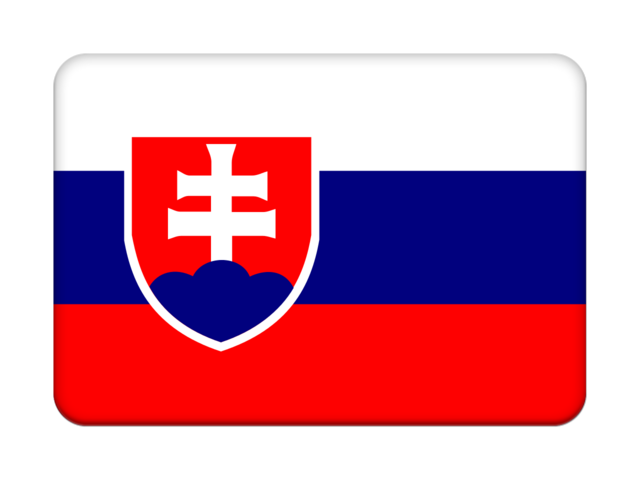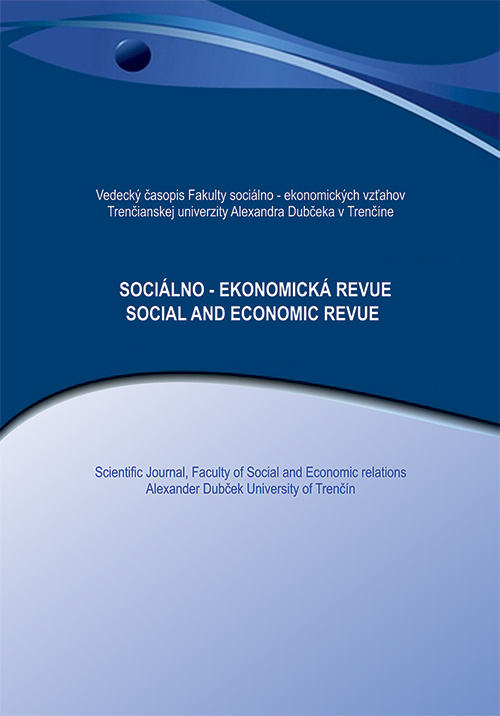SMART EDUCATION IN SLOVAKIA, BELARUS AND LEBANON AND ITS IMPROVEMENT USING INTELLIGENT DECISION SUPPORT SYSTEM (IDSS)
Smart educational has been established at all stages of education in Lebanon, Slovakia and Belarus, but in different perspectives. In order to evaluate the usefulness of decisions as well as measure the significance of further competences, Decision support system (DSS), a collaborating information system of computer based that is intended to provide support to outcomes of decision problems, has become a research focus. The intelligent decision support system (IDSS), which is the outcome of the coalescing artificial intelligent (AI) and (DSS), seems to be an efficient tool for improving technical educational. Generally speaking, IDSS is an “interactive computer information system” that can provide assistance to decision-makers for using of facts and figures to solve complex problems. the study intends to use IDSS as a tool to evaluate the quality of decisions and therefore enhance the effectiveness and efficiency of education in the developing countries like Lebanon, Slovakia and Belarus. The study aims to relate the historical background of IDSS, present latest trends, tools and techniques in IDSS and end up with a conclusion enforced with many recommendations for a promising educational development.
Vydanie: 2017/2 Strany: 59-65 Klasifikácia JEL:
DOI:
Kľúčové slová: development strategy, technical institutes of higher education, Lebanon, Belarus, intelligent decision support system (IDSS)
Sekcia: SOCIAL CONTEXT OF THE ECONOMY, LABOR MARKET AND HUMAN RESOURCES DEVELOPMENT
Kontakty:
doc. Ing. Jozef Habánik, PhD.
Department of Public Administration and Regional Economy,
Faculty of Social and economic relations,
University of Alexander Dubchek in Trencin,
Študentská 3, 911 50 Trencin,
Slovakia
e-mail: jozef.habanik@tnuni.sk
Siniak Nikolai − Ph. D. Economy, assistant professor, Head of Department of Production Organization and Real Estate Economics
Belarusian State Technological University (13a, Sverdlova str., 220006, Minsk, Republic of Belarus).
e-mail: siniakn@belstu.by
Habib Avada – postgraduate student of Department of Production Organization and Real Estate Economics
Belarusian State Technological University
13a, Sverdlova str., 220006, Minsk,
Republic of Belarus
e-mail: habib.awada@liu.edu.lb
Sharif Nureddin – postgraduate student of Department of Production Organization and Real Estate Economics Belarusian State Technological University
13a, Sverdlova str., 220006, Minsk,
Republic of Belarus
e-mail: sharifnoureddin@gmail.com
Ing. Karol Krajčo
Department of Economics and Economy,
Faculty of Social and economic relations,
University of Alexander Dubchek in Trencin,
Študentská 3, 911 50 Trencin,
Slovakia
e-mail: karol.krajco@tnuni.sk
Literatúra:
Arnott, D., &Pervan, G. (2008). Eight key issues for the decision support systems discipline. Decision Support Systems, 44(3), 657-672.
Arnott, D., &Pervan, G. (2012). Design science in decision support systems research: An assessment using the Hevner, March, Park, and Ram guidelines. Journal of the Association for Information Systems, 13(11), 923.
Arnott, D., &Pervan, G. (2014). A critical analysis of decision support systems research revisited: the rise of design science. Journal of Information Technology, 29(4), 269-293.
Forgionne, G. A., Mora, M., Gupta, J. N., &Gelman, O. (2005). Decision-Making Support Systems. In: Encyclopedia of Information Science and Technology, Idea Group, USA, pp. 759–765.
Lee, K. W., & Huh, S. Y. (2006). A model-solver integration framework for autonomous and intelligent model solution. Decision support systems, 42(2), 926-944.
Liu, S., Duffy, A. H., Whitfield, R. I., & Boyle, I. M. (2010). Integration of decision support systems to improve decision support performance. Knowledge and Information Systems, 22(3), 261-286.
Maynard, S., Burstein, F., &Arnott, D. (2001). A multi-faceted decision support system evaluation approach. Journal of decision systems, 10(3-4), 395-428.
Mora, M., Forgionne, G., Cervantes, F., Garrido, L., Gupta, J. N., & Gelman, O. (2005). Toward a comprehensive framework for the design and evaluation of intelligent decision-making support systems (i-DMSS). Journal of Decision Systems, 14(3), 321-344.
Phillips-Wren, G., Mora, M., Forgionne, G. A., & Gupta, J. N. (2009). An integrative evaluation framework for intelligent decision support systems. European Journal of Operational Research, 195(3), 642-652.
Quintero, A., Konaré, D., & Pierre, S. (2005). Prototyping an intelligent decision support system for improving urban infrastructures management. European journal of operational research, 162(3), 654-672.
Recio, B., Ibanez, J., Rubio, F., &Criado, J. A. (2005). A decision support system for analyzing the impact of water restriction policies. Decision Support Systems, 39(3), 385-402.
Zhang, J., &Pu, P. (2008). Performance evaluation of consumer decision support systems. International Journal of E-Business Research, 2(3).
Zhou, F., Yang, B., Li, L., & Chen, Z. (2008, June). Overview of the new types of intelligent decision support system. In Innovative Computing Information and Control, 2008. ICICIC'08. 3rd International Conference on (pp. 267-267). IEEE.
Arnott, D., &Pervan, G. (2008). Eight key issues for the decision support systems discipline. Decision Support Systems, 44(3), 657-672.
Arnott, D., &Pervan, G. (2014). A critical analysis of decision support systems research revisited: the rise of design science. Journal of Information Technology, 29(4), 269-293.
Claver, E., González, R., &Llopis, J. (2000). An analysis of research in information systems (1981–1997). Information & Management, 37(4), 181-195.
Eom, H. B., & Lee, S. M. (1990). Decision support systems applications research: a bibliography (1971–1988). European Journal of Operational Research, 46(3), 333-342.
Frantz, R. (2003). Herbert Simon. Artificial intelligence as a framework for understanding intuition. Journal of Economic Psychology, 24(2), 265-277.
The Growth Report. Strategies for sustained growth and inclusive development. 2008. URL: http://cgd.s3.amazonaws.com/GrowthReportComplete.pdf (дата обращения: 17.06.2015).
Keen, P. G., & Scott, M. (1978). Decision support systems; an organizational perspective. Addison Wesley Publishing. Reading, MA.
Liu, S., Duffy, A. H., Whitfield, R. I., & Boyle, I. M. (2010). Integration of decision support systems to improve decision support performance. Knowledge and Information Systems, 22(3), 261-286.
Nutt, P. C. (2007). Intelligence gathering for decision making. Omega, 35(5), 604-622.
Phillips-Wren, G., Mora, M., Forgionne, G. A., & Gupta, J. N. (2009). An integrative evaluation framework for intelligent decision support systems. European Journal of Operational Research, 195(3), 642-652.
Rosenthal-Sabroux, C., &Zaraté, P. (1997). Artificial intelligence tools for decision support systems. European Journal of Operational Research, 103(2), 275-276.
Simon, H. A. (1960). The new science of management decision. Harper Brothers. New York.
Simon, H. A. (1977). The new science of management decision Prentice-Hall. Englewood Cliffs, NJ.
Zhou, F., Yang, B., Li, L., & Chen, Z. (2008). Overview of the new types of intelligent decision support system. In Innovative Computing Information and Control, 2008. ICICIC'08. 3rd International Conference on (pp. 267-267). IEEE.
Aihua, W., Wenge, G., Guoxiong, X., Jiyou, J., &Dongmao, W. (2009). GIS-Based Educational Decision-Making System. In 2009 IEEE International Conference on Grey Systems and Intelligent Services (GSIS 2009) (pp. 1198-1202). IEEE.
Alsurori, M., &Salim, J. (2009). Information and communication technology for decision-making in the Higher Education in Yemen: A review. In 2009 International Conference on Electrical Engineering and Informatics (Vol. 2, pp. 321-324). IEEE.
Arnott, D., &Pervan, G. (2008). Eight key issues for the decision support systems discipline. Decision Support Systems, 44(3), 657-672.
Arnott, D. (2008). Personal decision support systems. In Handbook on Decision Support Systems 2 (pp. 127-150). Springer Berlin Heidelberg.
Bresfelean, V. P., Ghisoiu, N., Lacurezeanu, R., & Sitar-Taut, D. A. (2009). Towards the development of decision support in academic environments. In Information Technology Interfaces, 2009. ITI'09. Proceedings of the ITI 2009 31st International Conference on (pp. 343-348). IEEE.
Burstein, F., &Carlsson, S. A. (2008). Decision support through knowledge management. In Handbook on Decision Support Systems 1 (pp. 103-120). Springer Berlin Heidelberg.
Cooper, B. L., Watson, H. J., Wixom, B. H., & Goodhue, D. L. (2000). Data warehousing supports corporate strategy at First American Corporation. Mis Quarterly, 547-567.
Dahlan, S. M., &Yahaya, N. A. (2010, September). A system dynamics model for determining educational capacity of higher education institutions. In 2010 Second International Conference on Computational Intelligence, Modelling and Simulation (pp. 285-290). IEEE.
Eom, S. B. (2007). The development of decision support systems research: A bibliometrical approach. Edwin Mellen Pr.
Hall, D., Guo, Y., Davis, R. A., &Cegielski, C. (2005). Extending Unbounded Systems Thinking with agent-oriented modeling: conceptualizing a multiple perspective decision-making support system. Decision support systems, 41(1), 279-295.
Liu, Q., & Liu, G. (2010, March). Research on the Framework of Decision Support System Based on ERP Systems. In Education Technology and Computer Science (ETCS), 2010 Second International Workshop on (Vol. 1, pp. 704-707). IEEE.
Pervan, G. P., & Atkinson, D. J. (1995). GDSS research: An overview and historical analysis. Group Decision and Negotiation, 4(6), 475-483.
Power, D. J. (2001, June). Supporting decision-makers: An expanded framework. In e-Proceedings Informing Science Conference, Krakow, Poland (pp. 431-436).
Turban, E., Aronson, J., & Liang, T. P. (2005). Decision Support Systems and Intelligent Systems 7 th Edition (pp. 10-15). Pearson Prentice Hall.
Watson, H. J. (2002). Recent developments in data warehousing. Communications of the Association for Information Systems, 8(1), 1.
Vohra, R., & Das, N. N. (2011). Intelligent decision support systems for admission management in higher education institutes. International Journal of Artificial Intelligence & Applications, 2(4), 63.
Central Intelligence Agency. (2007). CIA factbook. Retrieved from http://www.cia.gov/publications/factbook/geos/le.html.
Dirani, K. (2006). Exploring socio-cultural factors that influence HRD practices in Lebanon. Human Resource Development International, 9(1), 85-98.
Education, Audiovisual and Culture Executive Agency. (2012). Higher Education in Belarus. Retrieved from http://eacea.ec.europa.eu/tempus/.
Giger, M., &Sloboda, M. (2008). Language management and language problems in Belarus: Education and beyond. International journal of bilingual education and bilingualism, 11(3-4), 315-339.
Jang, S., & Kim, N. (2004). Transition from high school to higher education and work in Korea, from the competency-based education perspective. International Journal of Educational Development, 24(6), 691-703.
Kabbani, N., & Kothari, E. (2005). Youth employment in the MENA Region: A situational assessment. World Bank, Social Protection Discussion Paper, 534.
Karam, G. (2006). Vocational and Technical Education in Lebanon: Strategic Issues and Challenges. International Education Journal, 7(3), 259-272.
UNESCO-IBE. (2010). World Data on Education: 7th edition. Retrieved from http://www.ibe.unesco.org/fileadmin/user_upload/Publications/WDE/2010/pdf-versions/Belarus.pdf.
Vlaardingerbroek, B., &Hachem El‐Masri, Y. (2008). Student transition to upper secondary vocational and technical education (VTE) in Lebanon: from stigma to success. Journal of Vocational Education and Training, 60(1), 19-33.
Wang, I. M., &Shieh, C. J. (2006). The Impact of Vocational Education on Economic Development in China. IJER Vol 14-N3, 300.
World Bank. (2003). Republic of Lebanon Update (1st Quarter). Beirut: World Bank.
Zoepf, K. (2006). The United Arab Emirates will soon be home to one of the world’s top business schools. Chronicle of Higher Education, 52(38), A47-A47.
Central Intelligence Agency. (2007). CIA factbook. Retrieved from http://www.cia.gov/publications/factbook/geos/le.html.
Dirani, K. (2006). Exploring socio-cultural factors that influence HRD practices in Lebanon. Human Resource Development International, 9(1), 85-98.
Education, Audiovisual and Culture Executive Agency. (2012). Higher Education in Belarus. Retrieved from http://eacea.ec.europa.eu/tempus/.
Giger, M., &Sloboda, M. (2008). Language management and language problems in Belarus: Education and beyond. International journal of bilingual education and bilingualism, 11(3-4), 315-339.
Jang, S., & Kim, N. (2004). Transition from high school to higher education and work in Korea, from the competency-based education perspective. International Journal of Educational Development, 24(6), 691-703.
Kabbani, N., & Kothari, E. (2005). Youth employment in the MENA Region: A situational assessment. World Bank, Social Protection Discussion Paper, 534.
Karam, G. (2006). Vocational and Technical Education in Lebanon: Strategic Issues and Challenges. International Education Journal, 7(3), 259-272.
UNESCO-IBE. (2010). World Data on Education: 7th edition. Retrieved from http://www.ibe.unesco.org/fileadmin/user_upload/Publications/WDE/2010/pdf-versions/Belarus.pdf.
Vlaardingerbroek, B., &Hachem El‐Masri, Y. (2008). Student transition to upper secondary vocational and technical education (VTE) in Lebanon: from stigma to success. Journal of Vocational Education and Training, 60(1), 19-33.
Wang, I. M., &Shieh, C. J. (2006). The Impact of Vocational Education on Economic Development in China. IJER Vol 14-N3, 300.
World Bank. (2003). Republic of Lebanon Update (1st Quarter)


